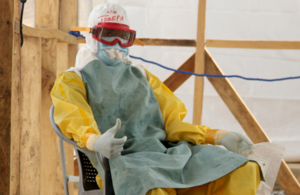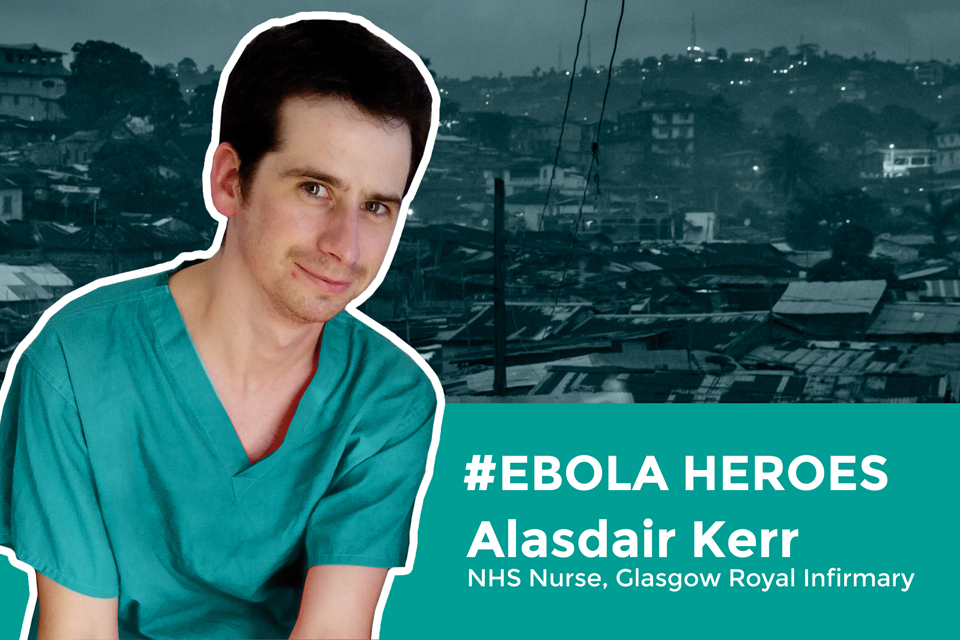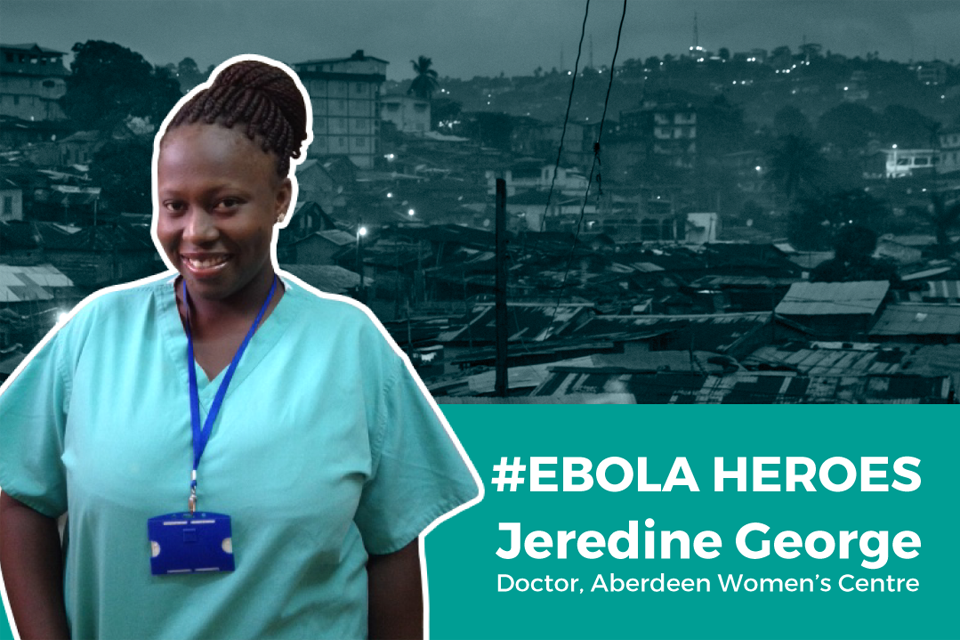UK ministers: Scotland can be proud of UK Ebola fight
Scots have made a ‘profound contribution’ to the UK’s Ebola response in Sierra Leone, Baroness Northover and Alistair Carmichael said today.

New cases of Ebola have dropped significantly in Sierra Leone since November. Picture: Jessica Seldon/DFID
Scottish health workers, military personnel and charities have made a ‘profound contribution’ to the UK’s response to the Ebola crisis in Sierra Leone, International Development Minister Baroness Northover and Secretary of State for Scotland Alistair Carmichael said in East Kilbride today.
The two ministers were hosting ‘The UK Response To The Ebola Crisis’ event, held at the Department for International Development (DFID) headquarters. The event also featured speeches from NHS volunteer Alasdair Kerr and Matthew Wingate, Director of Save the Children’s Emergency Health Unit.
Profile: Alasdair Kerr, NHS Nurse

Image - a graphic of NHS worker Alasdair Kerr
Alasdair Kerr works in the intensive care unit at Glasgow Royal Infirmary. Originally from Galston, Ayrshire, he signed up alongside 130 Scottish healthcare workers to join the UK’s Ebola response in Sierra Leone. He was posted to work in the British-built treatment centre in Kerry Town, just outside the capital, nursing those who had been confirmed with the virus. “I’ve never been prouder as an NHS worker than when I saw how many of my colleagues had volunteered for the Ebola response” he says. “Together, we are making a difference.”
International Development Minister Baroness Northover said:
Scotland can be immensely proud of the profound contribution Scottish health workers, military personnel and charities have made to the UK’s fight against Ebola in Sierra Leone.
With our help there are now sufficient treatment and isolation beds, sufficient labs to test for the virus quickly and effectively, and sufficient trained burial teams to make sure bodies are buried quickly, safely and with the dignity they deserve.
We have gone from seeing over 500 cases a week at the end of November to under 60 in early March. This huge reduction shows that our strategy is working, but we cannot afford to be complacent. We must get to zero cases as fast as possible.
The results the UK response has achieved shows how our commitment to investing 0.7% of our national income in development is making a genuine difference to the lives of some of the world’s poorest people.
Secretary of State for Scotland Alistair Carmichael said:
As a country, we have risen to meet the massive medical challenge of Ebola in West Africa and will continue to do so. Much of this essential work has been co-ordinated through the DFID offices right here in Scotland.
The UK has been at the forefront of the incredible response to Ebola and Scotland has played a huge part in providing expertise and support as part of that partnership.
Working together meant we could go further and do more together to combat this terrible disease, combining our resources with the bravery and skill of those fighting Ebola first-hand to make a real difference.
The work of DFID, volunteers, military personnel and medical staff goes unseen and unsung too often. Today’s summit shows exactly why each of us owes them a huge debt of gratitude for the work they do.
Monday’s event covered the UK-led response to the Ebola crisis in Sierra Leone, the work Scottish charities and volunteers have done fighting the disease and domestic preparedness.
Profile: Jeredine George, Freetown doctor

Image - a graphic of Freetown doctor Jeredine George
Dr Jeredine George works at the Aberdeen Women’s Centre in Freetown, Sierra Leone. Supported by Scottish organisations – including the Gloag Foundation and Freedom from Fistula – the centre has continued to provide vital health services to new mums and their babies throughout the outbreak. As clinical lead, Dr George has helped to keep these critical services running, helping to make sure newborns are still being properly fed and immunised despite the challenges posed by Ebola.
The UK has led the international response to the Ebola crisis in Sierra Leone. The £427 million response has supported more than half of all the beds available for Ebola patients in Sierra Leone, funded over 100 burial teams, trained 4,000 frontline staff, provided three labs to test one third of all samples collected nationally and delivered over one million PPE suits and 150 vehicles.
The response is now focusing on the surveillance and contact tracing of remaining cases, as well as social mobilisation work encouraging the people of Sierra Leone to go to a health centre if symptomatic and to bury the dead in a safe and dignified way.
General media queries (24 hours)
Email mediateam@dfid.gov.uk
Telephone 020 7023 0600
If you have an urgent media query, please email the DFID Media Team on mediateam@dfid.gov.uk in the first instance and we will respond as soon as possible.